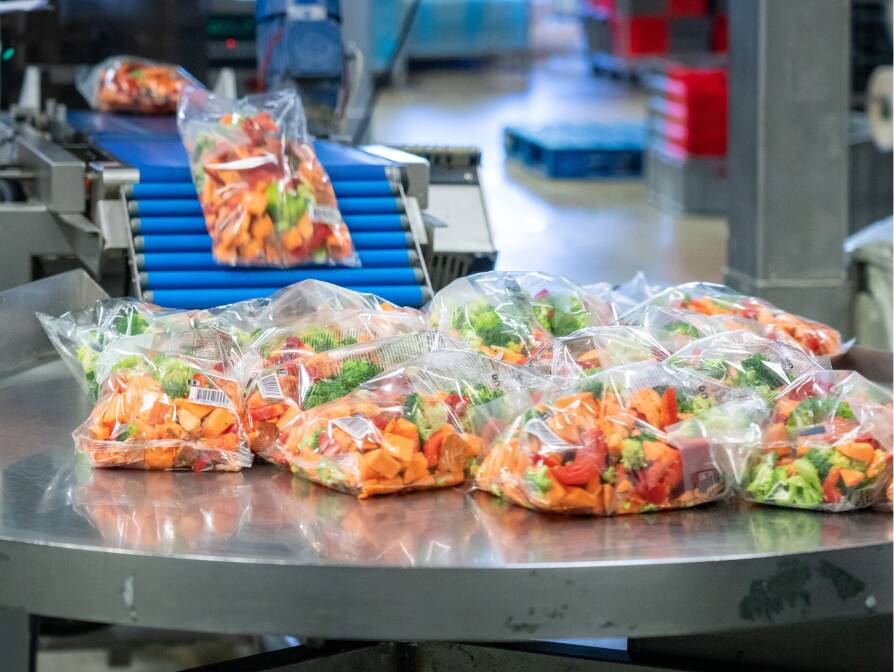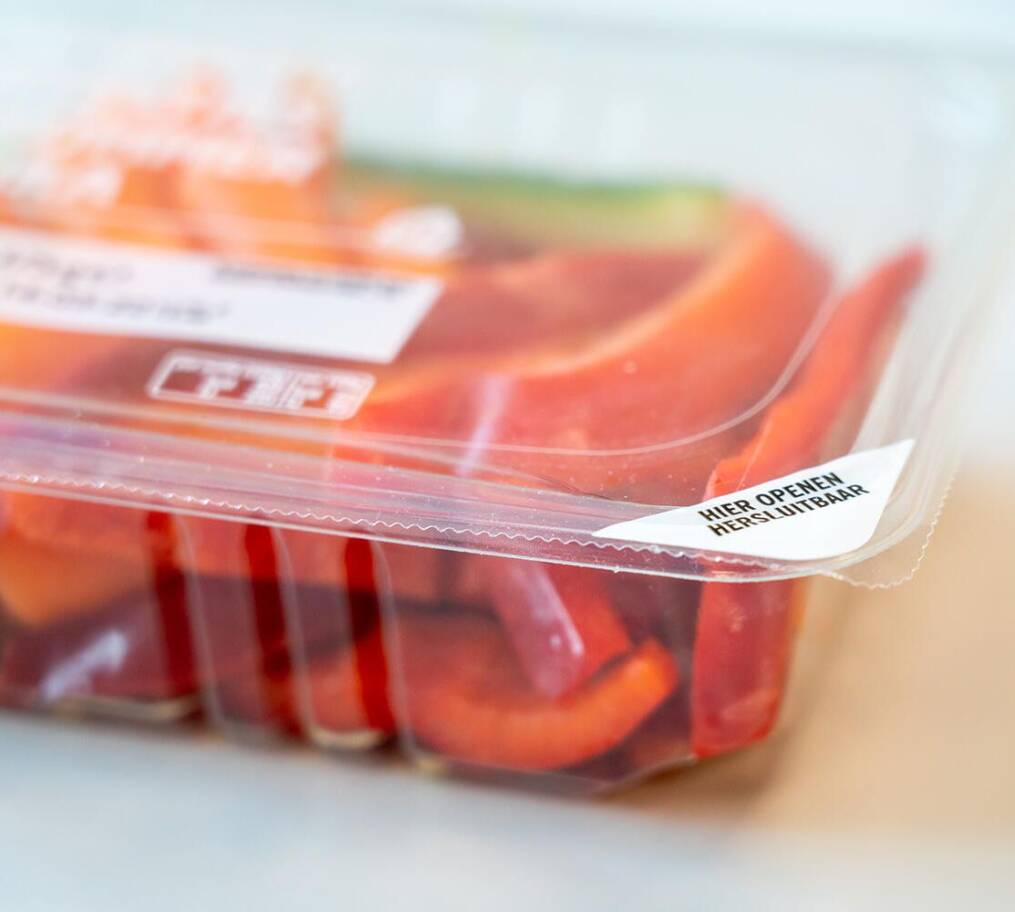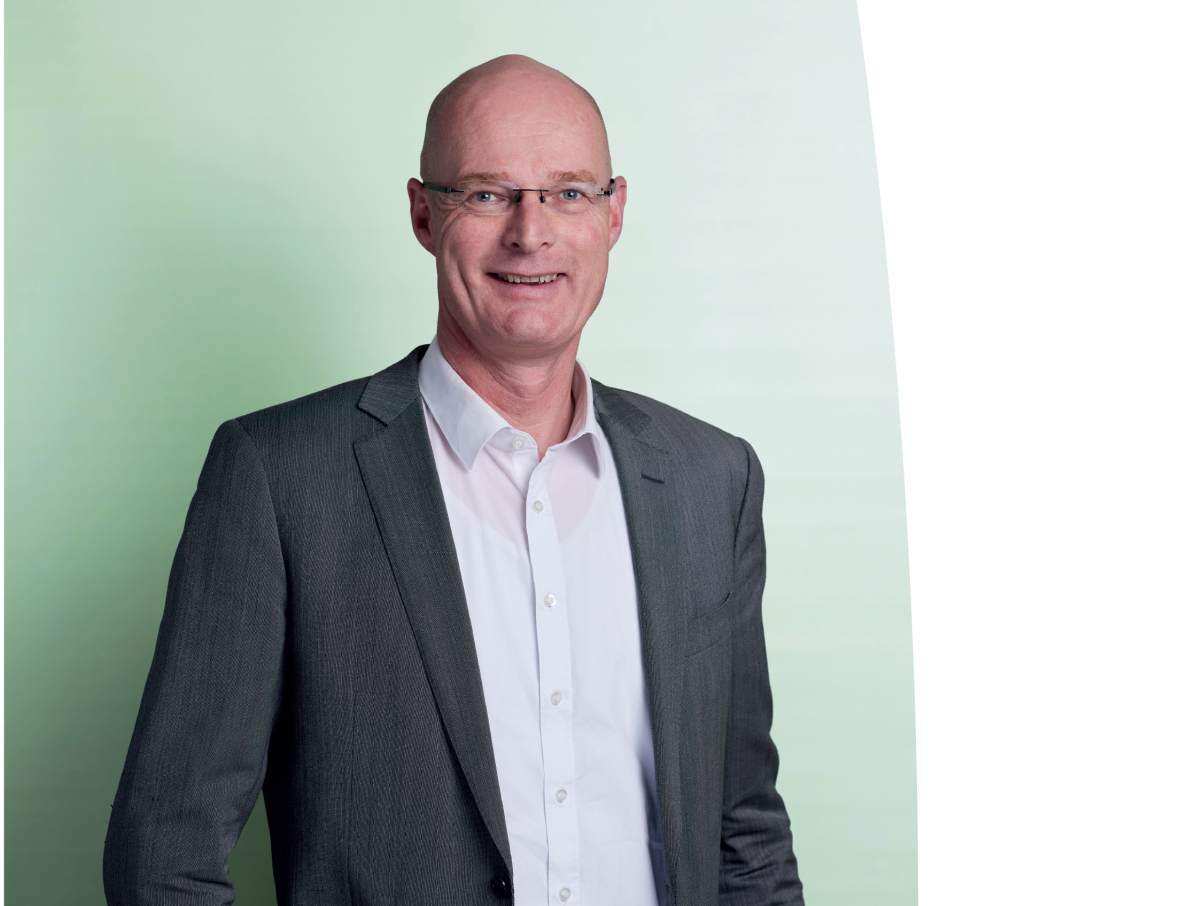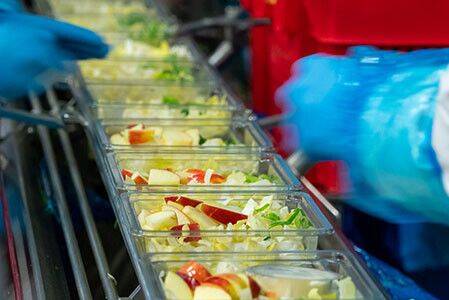LEO VAN DER MEER
Key Account Manager
Back to mainpage
One of the short-term initiatives is the switch from PET/PE composite film to a single-material recyclable film. Leo explains: ‘We are currently testing these in the Vezet production kitchen in Purmerend. But we can analyse materials and packaging ourselves in The LCA Centre as well. We always take the requirements of the packaging and the product into account in terms of processability, quality, food safety, appearance and cost efficiency.’
‘We didn't let any restrictions guide us.’




Vezet reduction plan;
‘A clear story towards more sustainable packaging’

Paardekooper and Vezet:
50% less carbon emissions in 2030.
Koninklijke Vezet is the largest company
in Europe for convenience vegetables, cut fruit, salads and chilled meals.
Reduction plan
Paardekooper drew up a reduction plan before the end of 2024. Leo van der Meer, Key Account Manager at Paardekooper, explains: ‘As a first draft, we calculated the current carbon footprint. The greatest impact of the range concerns the material and production phase (61%), followed by the waste phase (36%), because not all products are recyclable yet. In the search for savings opportunities, the focus is therefore on alternative materials and recyclability. We propose various initiatives in our plan that can reduce scope 3 emissions.’
Clarity
‘A clear story’, says Sander. ‘The plan gives us concrete insight into where we can save money. Paardekooper has visualised this in a matrix that shows the relationship between the carbon impact and the required costs and complexity per initiative. We know exactly what we need to work on and what actions we need to take. For example, there are still plenty of gains to be found in thickness reduction with PP and PET, but we are now reaching the limits in terms of processability on our lines. This is why we will focus even more on recyclability and the use of recycled materials. It is essential that we closely monitor developments in the recycling industry, as they will determine how we can make our packaging more sustainable. Testing remains crucial, but fortunately we have a strong partner in Paardekooper, who, with their network and expertise, always provides a complete overview of the possibilities.’
The future
‘The plan also includes initiatives for which the impact lies beyond our sphere of influence,’ Leo continues. ‘Take legislation and regulations, the use of recycled material in food packaging, and the degree of recyclability of materials. One of the areas for improvement is PP film because it is not yet recycled on a large scale. There are, however, various initiatives underway to recycle PP film, so the expectation is that it can be regarded as easily recyclable in the future. As an organisation, we maintain close contact with Verpact and other relevant industry organisations in order to always remain aware of any developments and be able to prepare our customers for them.’
Promising initiatives
‘As mentioned before, we were not guided by any restrictions,’ Joline emphasises again. We started high level. Now we need to translate this into concrete processes. The plan contains several promising initiatives for the short and long term. We simply can’t do everything at once, no matter how much we would like to.’
Years of collaboration
Paardekooper and Vezet have been working together for more than 30 years. ‘My predecessor worked with Paardekooper before I got here,’ says Sander van der Veen, Packaging Materials Buyer at Vezet. ‘We were already looking at ways to save on kilos of packaging material thirteen years ago. At that time we didn’t call it ‘sustainability’, we called it saving costs. And we have learned a great deal in this area. We used 25 percent less material for various products between 2018 – 2023 by choosing thinner film. Other successes include the switch from a thicker composite (PET/PE) film to thin recyclable PE film for pizzas, while for carrot film we switched from a composite film to a single material film.’
Koninklijke Vezet is the largest company in Europe for convenience vegetables, cut fruit, salads and chilled meals. The company is obliged to publish a sustainability report in accordance with the Corporate Sustainability Reporting Directive (CSRD). As a supplier, we help Vezet gain insight into the impact of our products as part of scope 3 (the impact in the value chain) and we work together to find ways to reduce carbon emissions.
Joline Zandbergen has been working at Vezet for 14 years, and has been the Sustainability Manager since May 2024. She says with a laugh: ‘We are all actually sustainability managers. Sustainability is embedded into everyone’s work. Just like many of our customers. As a fresh produce partner for Albert Heijn, we must report and reduce our scope 1-2-3 emissions annually. The law prescribes a carbon reduction of 50% in 2030, but Albert Heijn asked us what would be required to achieve 70%. A huge challenge, but one that we took on without restrictions. Paardekooper helps us map and reduce the environmental impact of our packaging.’
Paardekooper developed a reduction plan for Koninklijke Vezet by providing the company with a practical and realistic roadmap for making its packaging range more sustainable. The plan includes various savings options, including the ratio between CO₂ impact and effort in costs and complexity. One of the short-term initiatives is the switch from composite PET/PE film to a recyclable film made from a single material, also known as mono-film.